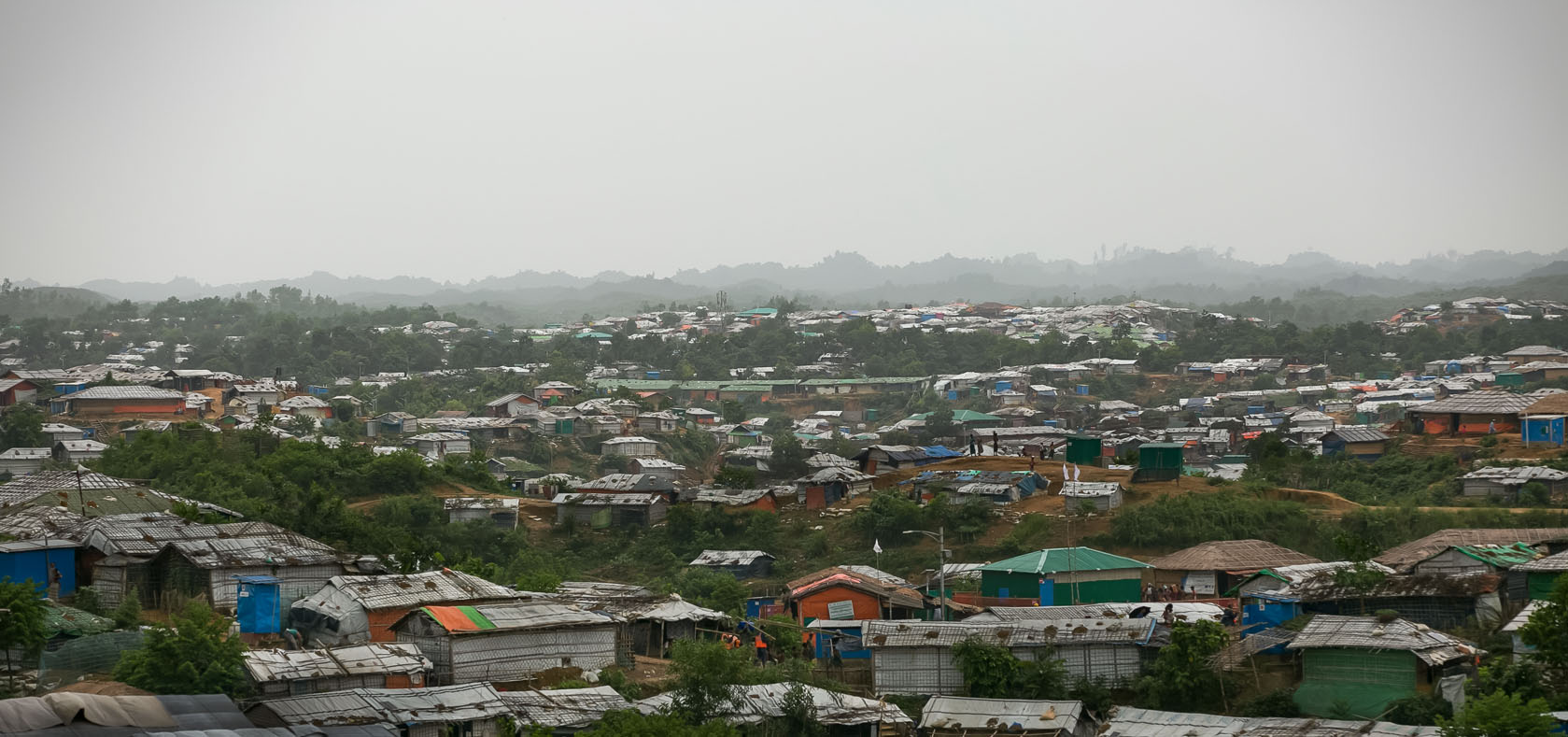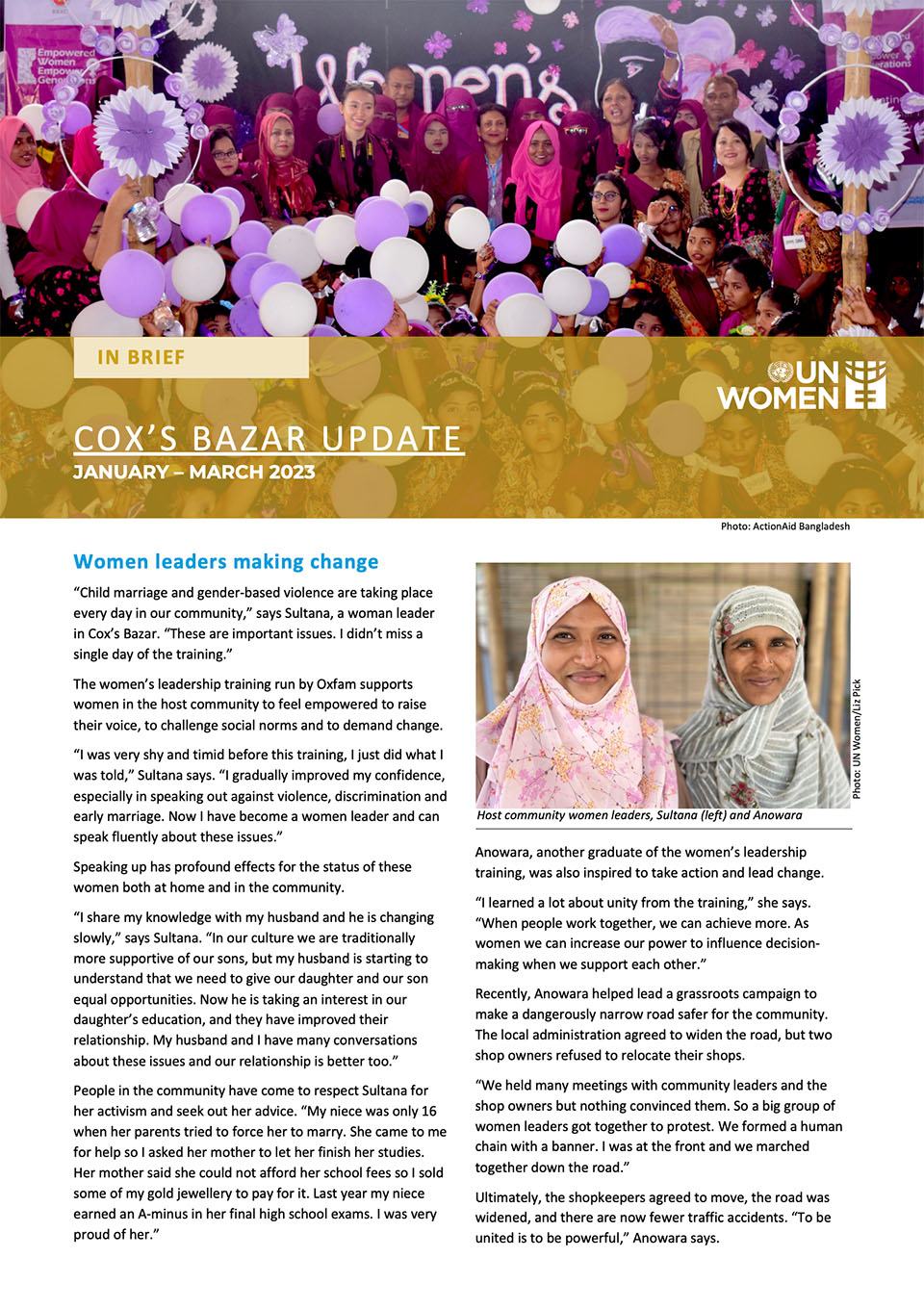UN Women helps secure lives of safety and dignity for women and girls in Rohingya refugee camps in Cox’s Bazar, Bangladesh

For decades, the people of the Rohingya ethnic minority have faced statelessness, systematic discrimination, and targeted violence in Myanmar’s Rakhine state. On 25 August 2017, another wave of military attacks forced hundreds of thousands of them to flee across the border into Cox’s Bazar, Bangladesh. The majority of the refugees are now living in 34 extremely congested camps. Over half (52 per cent) of the refugees are women and girls. And 16 per cent of all households are headed by women.
UN Women has worked to relieve the plight of the refugees from the early days of the humanitarian emergency.
We partner with the Ministry of Women and Children Affairs, female leaders, women’s organizations, and local organizations to meet the needs of the most vulnerable and marginalized women and girls among the Rohingyas as well as in the community around the camps. In particular, we work to ensure that female-headed households and adolescent girls have equal and safe access to essential services and life-saving humanitarian assistance and can live with dignity. UN Women is promoting the Women, Peace and Security Agenda by supporting women’s leadership, participation in decision-making and social cohesion, and access to services, livelihoods, and learning opportunities.
UN Women’s work in Cox’s Bazar focuses on:
